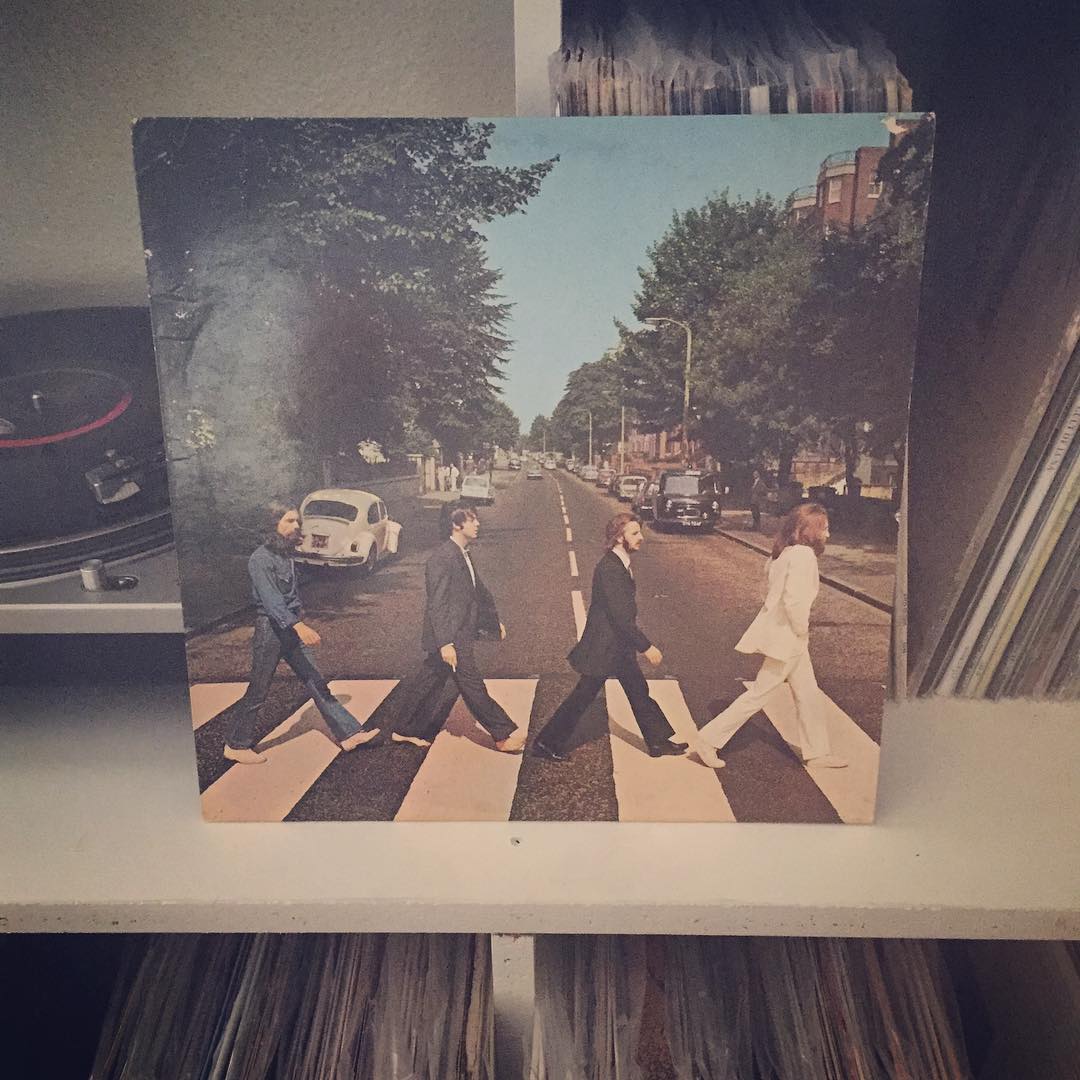A few posts back, I said that the best Beatles record had yet to come.
And here it is.
And here it is.
While released before Let It Be, itwas recordedd after, a true and fitting swansong by the greatest group to ever step into a studio. Every. Single. Song on here is great (EVEN “Octopus’s Garden,” don’t act like you don’t love it). From the classic blues waltz of “Oh! Darling” to the tender “Something” (John’s favorite song on the record and George’s first A-side single) to the menacing proto-Krautrock of “I Want You (She’s So Heavy)” to the more brilliant than brilliant rock medley that closes side 2 (Western pop music’s greatest achievement), everything here is Classic Beatles. I mean…this is the album with “Come Together” and “Here Comes The Sun” on it. What more could you want? It’s brilliant, back to front. I have this on cassette in my car, and sometimes I just let it stay in my tape deck for weeks before putting something else on, and when I do, let me assure you, it’s absolutely not because I’m sick of it. Becoming sick of this album is impossible. I dare anyone to try it. It won’t work.
The greatest mystery in rock in roll (if you ask me) is how Abbey Road followed The White Album and (the recording sessions for) Let It Be. Both of those albums show a band moving more and more towards being a shared solo project, fracturing at every point, whereas Abbey Road is the most collaborative effort the group had ever put to tape. John, Paul, and George sing as a single unit on two songs, Ringo joins that unit for a fourth, they jam through “I Want You (She’s So Heavy)” like a group that loves nothing else but playing together, Ringo’s song isn’t treated dismissively by the rest of the group (check out George’s lead line!), and the three players used to guitars trade rapidfire solos (Paul’s is soooo nasty) in the bombastic instrumental section of “Carry That Weight” (which also features Ringo’s greatest drum solo ever). This doesn’t sound at all like the same four egos that nearly destroyed the Best Band on Earth on the White Album–it sounds like the same band that made Revolver again, finally achieving the greatness “Tomorrow Never Knows” promised.
In terms of songwriting, they’ve never been better. Paul’s obsession with pop traditionalism pays off big time with “Oh! Darling,” “You Never Give Me Your Money” (one of their greatest songs), and “Golden Slumbers” (OH! Golden Slumbers!). John’s relationship with Yoko Ono (for once) leads to some of his best leftfield compositions (“Sun King,” “Because,” etc), George is allowed a little more breathing room and offers two of his all-time greatest. And whatever must have been in the water spread to Ringo too, because his second composition under the Beatles moniker is actually listenable (see also: the inane “Don’t Pass Me By,” and compare). And the side 2 medley makes the best use of song-starts pop music has ever seen (oh! Side 2 medley!).
George later said that while no one spoke a word of it, everyone seemed to know that this was the last time they would ever work together as the Beatles, so they might as well go out with a bang. And Abbey Road is certainly an incredible closing parenthesis to the incredible career they had as The Beatles.
The greatest mystery in rock in roll (if you ask me) is how Abbey Road followed The White Album and (the recording sessions for) Let It Be. Both of those albums show a band moving more and more towards being a shared solo project, fracturing at every point, whereas Abbey Road is the most collaborative effort the group had ever put to tape. John, Paul, and George sing as a single unit on two songs, Ringo joins that unit for a fourth, they jam through “I Want You (She’s So Heavy)” like a group that loves nothing else but playing together, Ringo’s song isn’t treated dismissively by the rest of the group (check out George’s lead line!), and the three players used to guitars trade rapidfire solos (Paul’s is soooo nasty) in the bombastic instrumental section of “Carry That Weight” (which also features Ringo’s greatest drum solo ever). This doesn’t sound at all like the same four egos that nearly destroyed the Best Band on Earth on the White Album–it sounds like the same band that made Revolver again, finally achieving the greatness “Tomorrow Never Knows” promised.
In terms of songwriting, they’ve never been better. Paul’s obsession with pop traditionalism pays off big time with “Oh! Darling,” “You Never Give Me Your Money” (one of their greatest songs), and “Golden Slumbers” (OH! Golden Slumbers!). John’s relationship with Yoko Ono (for once) leads to some of his best leftfield compositions (“Sun King,” “Because,” etc), George is allowed a little more breathing room and offers two of his all-time greatest. And whatever must have been in the water spread to Ringo too, because his second composition under the Beatles moniker is actually listenable (see also: the inane “Don’t Pass Me By,” and compare). And the side 2 medley makes the best use of song-starts pop music has ever seen (oh! Side 2 medley!).
George later said that while no one spoke a word of it, everyone seemed to know that this was the last time they would ever work together as the Beatles, so they might as well go out with a bang. And Abbey Road is certainly an incredible closing parenthesis to the incredible career they had as The Beatles.
